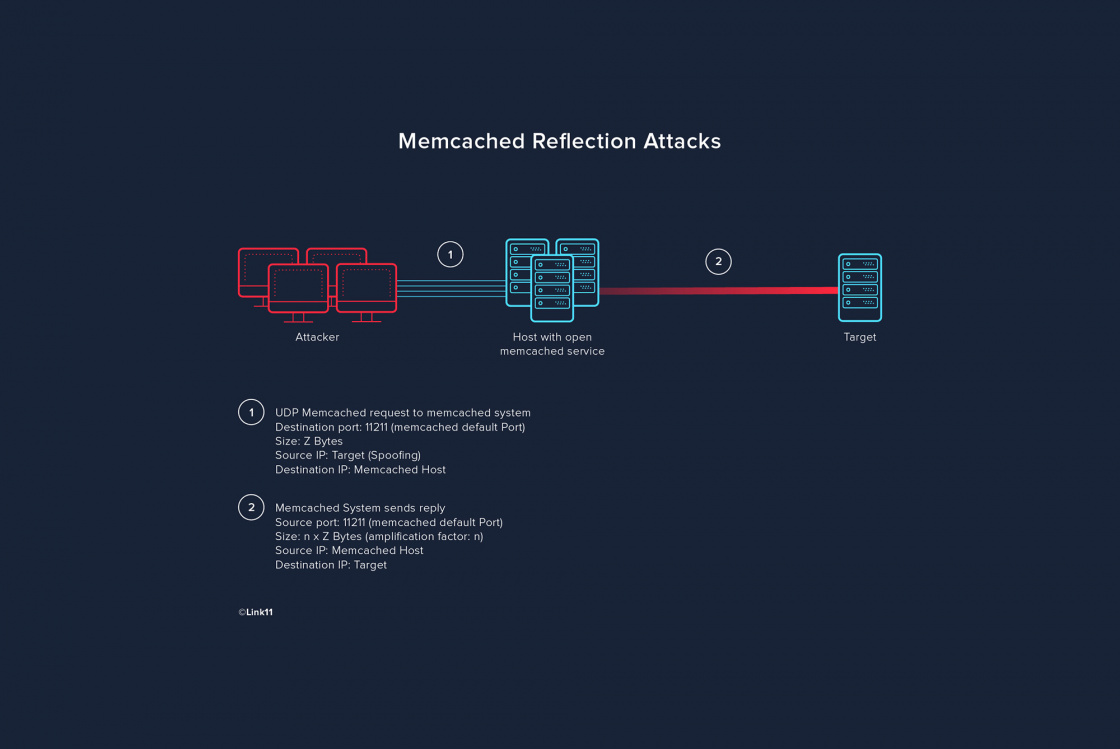 INFRA
INFRA
 INFRA
INFRA
 INFRA
INFRA
Multiple security companies are reporting on a new type of distributed denial-of-service attack that exploits unprotected servers to launch massive attacks against organizations.
The servers use Memcached, a popular open source distributed memory caching system. It’s used in turn to speed up dynamic database-driven websites by caching data and objects in temporary memory to reduce the number of times an external data source must be read when delivering a webpage.
Those behind the attacks have worked out a way to exploit a setup issue with the UDP protocol in some Memcached installations to cause Memcached to respond with data packets thousands of times bigger than a usual request. That multiplies the volume of data in the given DDoS attack, sort of like giving a megaphone to a mouse.
The attackers using Memcached for DDoS attacks are creating some incredible numbers. Akamai Technologies Inc. said in a blog post that on Monday it had mitigated a 190 gigabytes-per-second Memcached attack that generated more than 17 million packets per second with the potential for much larger attacks. Arbor Networks wrote that it had “observed a considerable uptick in memcached reflection/amplification attacks ranging in size from a few hundred mb/sec up to 500gb/sec and larger.”
Cloudflare Inc., which has dubbed the attack as “Memchrashed,” wrote today that Memcached-based reflection DDoS attacks can have amplification factors up to 51,200, citing a recent DDoS attack launched against its network during which attackers sent 15-byte packets and Memcached servers responded with 750-kilobyte packets in return.
German security firm Link11 said that the attacks began on several consecutive days and were “particularly dangerous due to their high bandwidths, which exceeded 100 Gbps during every attack,” with peaks of well beyond 400 Gbps. Showing that the attacks are truly global, Chinese security firm Qihoo 360 reports a massive uptick in Memcached servers used as a source of reflection DDoS attacks since Saturday.
Network operators are being advised to take preventive action to try to mitigate risks if they are targeted. “It is critical that network operators take proactive measures to ensure they are prepared to detect, classify, traceback, and mitigate these attacks, as well as ensure that any Memcached installations on their networks and/or networks of their end-customers cannot be exploited as reflectors/amplifiers,” Arbor noted.
Support our mission to keep content open and free by engaging with theCUBE community. Join theCUBE’s Alumni Trust Network, where technology leaders connect, share intelligence and create opportunities.
Founded by tech visionaries John Furrier and Dave Vellante, SiliconANGLE Media has built a dynamic ecosystem of industry-leading digital media brands that reach 15+ million elite tech professionals. Our new proprietary theCUBE AI Video Cloud is breaking ground in audience interaction, leveraging theCUBEai.com neural network to help technology companies make data-driven decisions and stay at the forefront of industry conversations.